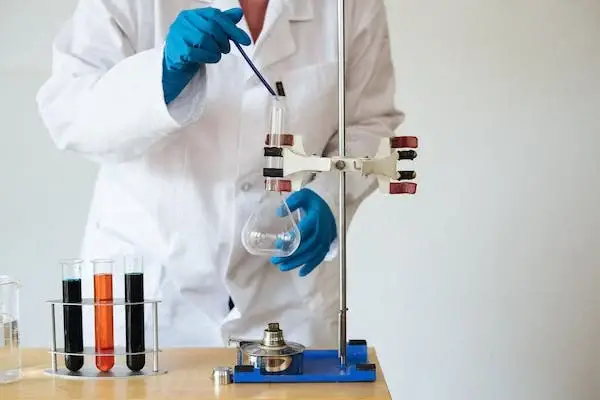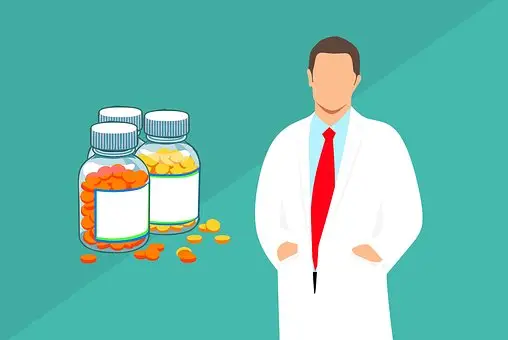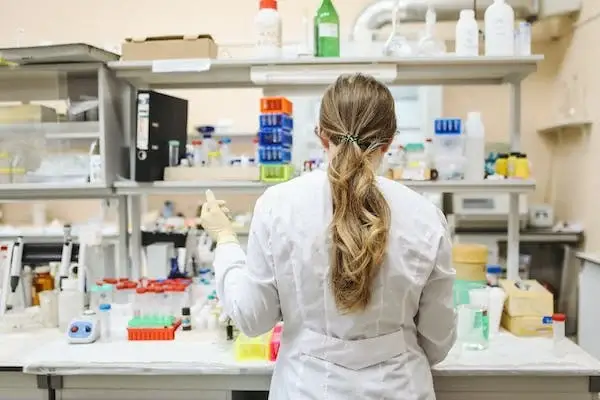We used the latest data and insights to identify the highest paying pharmacist jobs so that you can learn and earn more.
Have you ever wondered what the highest-paying pharmacist jobs are? Do you like making a difference in the lives of others?
Pharmacists are medical professionals who work in pharmacies and hospitals to dispense prescription drugs and help patients understand their conditions.
Well-paying jobs in pharmacy have some of the highest educational requirements of any profession. Let’s take a look at what it takes to become a pharmacist, as well as some salary information to help you decide if the field is right for you.
Here are the highest-paying pharmacy jobs:
You Might Also Want To Know:
- 10 Highest Paying Jobs for Economics Majors
- 15 Highest Paying Biology Jobs
- 15 Highest Paying English Jobs
Table of Contents
#10. Pharmaceutical Physician
How much do they get paid?
- Source: Comparably
- Low Range: $16,262 per year
- High Range: $434,045 per year
- Median Pay: $78,438 per year

What do they do?
A pharmaceutical physician is a licensed medical professional who works in a retail pharmacy, hospital, or clinic. They help patients manage their medications by advising them on proper dosages and usage. In some cases, they may also prescribe medications themselves.
What degrees and skills are usually required?
To become a pharmaceutical physician, you should hold a bachelor’s degree and complete an accredited pharmacy program. The BLS reports that most employers prefer candidates with a Doctor of Pharmacy (PharmD) degree.
Who’s hiring for this job?
Retail pharmacies, hospitals, and clinics are all good places to find job opportunities as a pharmaceutical physician.
What is the best way to get this job?
Once you have a degree in pharmacy, you can apply for positions at local pharmacies or hospitals. You should also consider continuing education courses to keep up with changes in the field and stay current on new medications and treatments.
Should you become a pharmaceutical physician?
#9. Long-Term Care Pharmacist
How much do they get paid?
- Source: Salary.com
- Low Range: $103,113 per year
- High Range: $130,335 per year
- Median Pay: $115,915 per year

What do they do?
Long-term care pharmacists work in nursing homes, adult day care centers, and other facilities that provide health services to people with chronic illnesses or disabilities. They may help residents manage their medication by doing the following:
- Teaching them how to take it correctly,
- Reviewing their prescriptions with them,
- Monitoring the effects of their treatments.
What degrees and skills are usually required?
Pharmacists who work in long-term care facilities need to hold a degree in pharmacy. They also must be licensed to practice and have experience working with medications for the elderly or chronically ill.
Who’s hiring for this job?
Hospitals, healthcare facilities, and long-term care facilities are all in need of pharmacists who can help residents manage their medications.
What is the best way to get this job?
The best way to get a job as a pharmacist in long-term care facilities is to obtain your degree and license.
Once you have that, it’s important to network with other pharmacists who work in this field. They can help you find jobs at facilities where they work as well as provide advice on how best to move forward in your career.
What’s it like to be a long-term care pharmacist?
You Might Also Want To Know:
- 10 Highest Paying Jobs for Economics Majors
- 15 Highest Paying Biology Jobs
- 15 Highest Paying English Jobs
#8. Pharmacy Informaticist
How much do they get paid?
- Source: Comparably
- Low Range: $103,085 per year
- High Range: $154,627 per year
- Median Pay: $128,856 per year

What do they do?
Pharmacy informaticists are responsible for developing and maintaining computer systems that help manage patient records, inventory, and other aspects of a pharmacy’s operations.
This can include creating databases that track medications, managing prescription orders, and providing information to healthcare professionals.
What degrees and skills are usually required?
The most common degree for this position is a bachelor’s in computer science. However, pharmacy informaticists may also have degrees in pharmacy or information technology. Some colleges may offer a degree specifically designed for pharmacy informatics.
Since this job is so specialized, employers typically require applicants to have a combination of skills and experience in information technology, computer programming, and database management.
Who’s hiring for this job?
Pharmacy informatics is a growing field. Some of the most common employers include hospitals, retail pharmacies, and mail-order companies.
What is the best way to get this job?
The best way to get a job in pharmacy informatics is to earn a degree and gain experience. The Bureau of Labor Statistics notes that many employers prefer candidates with at least one year of experience, so it might be helpful to consider taking on an internship or volunteering with a local pharmacy first.
What’s it like to be a pharmacy informaticist?
#7. Inpatient Pharmacist
How much do they get paid?
- Source: Glassdoor
- Low Range: $84,000 per year
- High Range: $203,000 per year
- Median Pay: $130,539 per year

What do they do?
Inpatient pharmacists are responsible for dispensing medications to patients in a hospital setting. They may also be tasked with overseeing the inventory of drugs, monitoring drug dosages, and managing drug interactions.
What degrees and skills are required?
Most inpatient pharmacists have a doctor of pharmacy degree. In addition to your education, you also need experience working as a pharmacy technician or assistant before you can apply for this position.
Who’s hiring for this job?
Hospitals and other healthcare facilities are the most common employers of inpatient pharmacists. However, many pharmacists also work in retail pharmacies and nursing homes.
What is the best way to get this job?
The best way to get a job as an inpatient pharmacist is to get a doctor of pharmacy degree. Then, you can work as a pharmacy assistant to have experience when it comes time to apply for jobs.
What’s it like to be an inpatient pharmacist?
You Might Also Want To Know:
- 10 Highest Paying Business Jobs You Might Not Know
- 10 Highest Paying Liberal Arts Jobs You Might Not Know
- 10 Highest Paying Chemistry Jobs to Consider
#6. Ambulatory Care Pharmacist
How much do they get paid?
- Source: Glassdoor
- Low Range: $90,000 per year
- High Range: $200,000 per year
- Median Pay: $134,412 per year

What do they do?
An ambulatory care pharmacist is a licensed professional who works in the field of outpatient care. They provide prescription medications to patients, help them manage their prescriptions, and educate them on how to properly use their medications.
What degrees and skills are usually required?
To become an ambulatory care pharmacist, you’ll need to obtain a degree in pharmacy and complete an accredited residency program. After this, you can sit for the national certification exam. Employers usually prefer to hire people with experience in ambulatory care.
Who’s hiring for this job?
Ambulatory care pharmacists can find job opportunities with hospitals, clinics, outpatient care centers, and other healthcare facilities.
What is the best way to get this job?
After completing the required training, you can sit for the national certification exam. Once you’re certified, it’s a good idea to start networking with other pharmacists in your area. This will help you find employment opportunities and get your foot in the door as soon as possible.
What’s it like to be an ambulatory care pharmacist?
#5. Clinical Staff Pharmacists
How much do they get paid?
- Source: Glassdoor
- Low Range: $96,000 per year
- High Range: $193,000 per year
- Median Pay: $135,724 per year

What do they do?
Clinical staff pharmacists are experts in clinical practice, research, and education. They work with doctors and other healthcare professionals to help improve patient healthcare outcomes. Clinical staff pharmacists may help patients manage their medications or provide advice about new treatments.
What degrees and skills are usually required?
You’ll need a doctor of pharmacy degree (PharmD) to become a clinical staff pharmacist. You’ll also need to pass a series of exams and secure licensure in the state where you want to work. It’s important that pharmacists stay up-to-date on the latest developments in their field by continuing education courses.
Who’s hiring for this job?
Pharmaceutical companies, hospitals, and clinics are all likely to hire clinical staff pharmacists. Government agencies may also be hiring for this position. The average salary for this position makes it one of the best careers for medical students.
What is the best way to get this job?
After graduating from pharmacy school, you can apply for a post-doctoral residency program at a hospital or clinic. These programs will help you gain experience working with patients and medical professionals before you start your practice.
Should you become a clinical staff pharmacist?
You Might Also Want To Know:
- 10 Highest Paying Chemical Engineering Jobs to Consider
- 10 Highest Paying Dentist Jobs to Consider (no Med Degrees)
- 10 Highest Paying Computer Science Jobs to Consider
#4. Nuclear Pharmacist
How much do they get paid?
- Source: ZipRecruiter
- Low Range: $89,500 per year
- High Range: $177,500 per year
- Median Pay: $136,090 per year

What do they do?
Nuclear pharmacists are experts in the use of radioisotopes to diagnose and treat diseases. They also can assist with radiation therapy and drug development.
What degrees and skills are usually required?
To become a nuclear pharmacist, you must have a pharmacy degree and complete an internship or residency. You also need to be licensed by your state board of pharmacy.
Who’s hiring for this job?
Hospitals and clinics are the most likely employers for nuclear pharmacists, but they also may be found at universities and private research centers. In addition to the obvious career options in radiology, nuclear pharmacists have many opportunities in radiochemistry, drug development, and more.
What is the best way to get this job?
Once you have met the requirements, you can apply for jobs through online job boards or by contacting local hospitals and clinics directly. You can also get involved in professional organizations that offer networking opportunities.
What’s it like to be a nuclear pharmacist?
#3. Pharmacy Consultant
How much do they get paid?
- Source: Glassdoor
- Low Range: $86,000 per year
- High Range: $223,000 per year
- Median Salary: $138,234 per year

What do they do?
A pharmacy consultant is a pharmacist who works with physicians to provide medical advice. A major responsibility of this job is to provide patients with information about their medications. You may also:
- Develop drug regimens based on patient needs,
- Diagnose problems with medication administration or dosages,
- Communicate these findings back to the doctor.
What degrees and skills are usually required?
A doctor of pharmacy degree is the minimum requirement for a job as a pharmacist. You may also need additional courses in pharmacology, biochemistry, and other areas.
Who’s hiring for this job?
Most hospitals, retail pharmacies, research facilities, and clinics will hire pharmacists. You can also work for a pharmaceutical company that produces medications or medical devices.
What is the best way to get this job?
You can get your first job as a pharmacist by working in a hospital or retail pharmacy. If you want to work in research, find a doctor who is conducting clinical trials and ask if he or she needs help.
You may also network with professionals in this field to get job alerts when there is a vacancy.
What’s it like to be a pharmacy consultant?
You Might Also Want To Know:
#2. Pharmacometrician
How much do they get paid?
- Source: Glassdoor
- Low Range: $93,000 per year
- High Range: $251,000 per year
- Median Pay: $152,306 per year

What do they do?
As one of the highest-paying pharmacy specialties, a pharmacometrician is a scientist who studies how our bodies absorb, distribute, metabolize, and excrete drugs. As such, they are responsible for creating models that help scientists understand how different drugs will react when put into the body.
What degrees and skills are usually required?
Pharmacometricians typically have a Ph.D. in pharmacometrics and experience working in this field, often under the supervision of a professor. While pharmacometrics is a fairly new field, many people who work as pharmacometricians have backgrounds in biostatistics or other related fields.
Who’s hiring for this job?
The pharmaceutical industry is the main employer of pharmacometricians, but hospitals and other medical facilities also employ them. The average annual salary for these professionals varies depending on your expertise and experience.
What is the best way to get this job?
As the education requirements for this career are fairly advanced, it’s a good idea to get a Ph.D. in pharmacometrics or a related field before applying for jobs as a pharmacometrician. You can also get into this field by starting in lower roles and working your way up to a top position.
What’s it like to be a pharmacometrician?
#1. Clinical Pharmacologist
How much do they get paid?
- Source: Glassdoor
- Low Range: $91,000 per year
- High Range: $277,000 per year
- Median Pay: $157,702 per year

What do they do?
A clinical pharmacologist is a specialist in the use of medications and their effects on patients. They work in many different areas, such as hospitals, private practices, research centers, and more. The job of a clinical pharmacologist is to identify which drugs are most effective for specific illnesses or injuries.
What degrees and skills are usually required?
Most clinical pharmacologists have a doctoral degree in clinical or experimental pharmacology. You’ll need to have excellent communication skills, as well as experience working with patients and physicians.
Who’s hiring for this job?
Hospitals and private practices are the most common employers of clinical pharmacologists. You’ll also find these professionals in research centers, government agencies, and other organizations.
What is the best way to get this job?
Once you’ve completed your education and training, you can look for jobs online or through a career services office at your school. You may also want to consider networking with other professionals to discover opportunities that might not be advertised publicly.
What’s it like to be a clinical pharmacologist?
You Might Also Want To Know:
- 10 Highest Paying Engineering Jobs
- 10 Highest Paying Jobs in Agriculture
- 10 Highest Paying Decision Science Jobs To Consider
Conclusion
If you’re looking for a way to make a difference in the world, being a pharmacist is a great place to start. You get to help people live longer while making good money.
Pharmacist jobs are high-paying, especially for those with experience and certifications.
If you’re interested in becoming a pharmacist, start by earning your bachelor’s degree. You can then apply to a pharmacy school and complete an accredited program.
We wish you the best of luck in your career.


